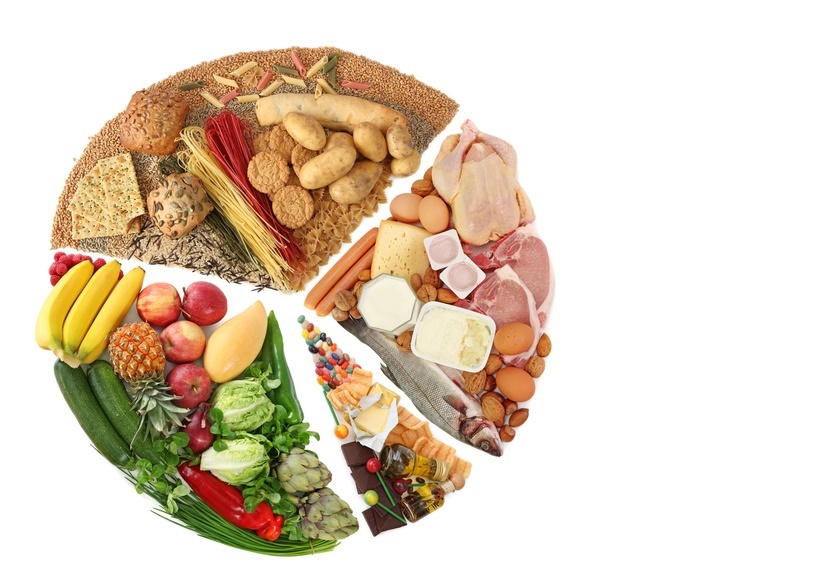Shop At Haya: Your Ultimate Shopping Guide
Discover the best shopping tips, trends, and deals for a smarter buying experience.
Eat Your Way to Happiness with a Balanced Diet
Discover the secret to happiness through a balanced diet! Transform your mood and life with delicious, nutritious food choices.
The Science Behind Food and Mood: How a Balanced Diet Supports Mental Wellness
The connection between food and mood has gained significant attention in recent years, as research increasingly suggests that our diet can profoundly influence our mental health. Nutrients such as omega-3 fatty acids, antioxidants, and various vitamins play crucial roles in brain function and emotional regulation. For instance, studies have shown that diets rich in fruits, vegetables, whole grains, and healthy fats can help reduce symptoms of anxiety and depression. By nourishing our bodies with these essential nutrients, we can not only enhance our physical health but also support our mental wellness.
Moreover, a balanced diet can promote the growth of beneficial gut bacteria, which is linked to mood enhancement. This phenomenon, known as the gut-brain axis, highlights the importance of fermented foods and fibers for a healthy microbiome. Incorporating foods like yogurt, sauerkraut, and fiber-rich vegetables can improve gut health, thereby positively affecting our mood and emotional stability. To maintain optimal psychological well-being, it is crucial to be mindful of what we consume and strive for a diet that supports both our physical and mental health.

10 Delicious Foods That Boost Happiness and Well-Being
Food has a powerful impact on our mood and overall well-being, and incorporating certain ingredients into our diets can significantly boost happiness levels. Here are 10 delicious foods that have been shown to enhance mood and promote a sense of well-being:
- Dark Chocolate: Known for its rich taste, dark chocolate can trigger the release of endorphins, making you feel happier.
- Berries: These sweet and tangy fruits are high in antioxidants, which help reduce inflammation and oxidative stress that can negatively affect your mood.
- Oily Fish: Foods like salmon and mackerel are rich in omega-3 fatty acids, which have been linked to lower rates of depression.
- Nuts: A great source of healthy fats, nuts like walnuts and almonds provide a boost in serotonin, a neurotransmitter that helps regulate mood.
- Bananas: Their natural sugars and vitamin B6 help produce serotonin, making them an excellent choice when you're feeling low.
In addition to the aforementioned foods, here are five more options that can elevate your spirits:
- Spinach: Leafy greens are not only nutritious but also rich in magnesium, which can help alleviate anxiety.
- Fermented Foods: Probiotics found in yogurt and kimchi support gut health, and a healthy gut has been strongly linked to improved mental health.
- Sweet Potatoes: These are loaded with nutrients and minerals that promote stable blood sugar levels, leading to more consistent moods.
- Quinoa: This superfood is packed with protein and contains all nine essential amino acids that help in the production of mood-regulating neurotransmitters.
- Green Tea: With its calming properties and the amino acid L-theanine, green tea can help you feel more relaxed and focused.
Can Eating Healthy Really Make You Happier? Exploring the Connection
Many people often wonder, can eating healthy really make you happier? The answer might lie in the intricate relationship between diet and mental well-being. Numerous studies suggest that a balanced diet, rich in fruits, vegetables, whole grains, and lean proteins, can significantly impact your mood. Foods high in omega-3 fatty acids, such as fish and walnuts, have been linked to reduced levels of depression and anxiety. By fueling the body with nutritious foods, you not only provide the essential nutrients needed for physical health but also uplift your mental state.
Moreover, the psychological aspects of eating healthy cannot be overlooked. When individuals make conscious decisions to improve their diet, they often experience a sense of accomplishment and empowerment. This positive reinforcement can lead to higher self-esteem and overall happiness. Additionally, eating a healthy diet can enhance physical health, leading to more energy and vitality, which further contributes to a happier disposition. In summary, the connection between healthy eating and happiness is apparent, making it not just a choice for physical health, but a pathway to improving mental well-being as well.